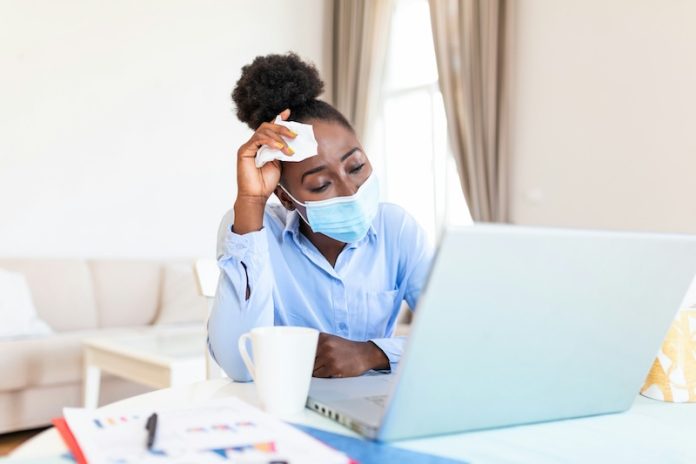
Researchers at Rutgers University have created a new antiviral drug for COVID-19 that could be safer and more effective than Paxlovid, the current leading treatment. The new drug, called Jun13296, may solve one of Paxlovid’s biggest problems: serious side effects caused by interactions with other medications.
Paxlovid has been widely used to treat COVID-19, especially in people at high risk of severe illness. However, many of these people already take medicines for other conditions like diabetes or high blood pressure. Because Paxlovid can interfere with those medicines, it isn’t safe for everyone.
The team at Rutgers Health, led by Professor Jun Wang, developed Jun13296 to work in a different way. It targets a part of the virus called PLpro (papain-like protease), while Paxlovid targets another part called the main protease. Unlike Paxlovid, which has to be combined with another drug called ritonavir to be effective, Jun13296 works on its own.
In tests on mice, Jun13296 was much more effective than the team’s earlier version of the drug. Mice treated with Jun13296 had a 90% survival rate, even at a low dose.
Those that got the older version of the drug had only a 40% survival rate, and mice that didn’t get any treatment all died. The drug also reduced inflammation and the amount of virus in the lungs much more than the older version.
Perhaps the most exciting result is that Jun13296 works well at lower doses than Paxlovid. In past animal studies with Paxlovid, researchers had to give high doses—150 to 300 milligrams per kilogram—to see good results.
Jun13296 showed strong effects at just 75 milligrams per kilogram. Lower doses are generally better for patients because they reduce the chance of harmful side effects.
Another major advantage is that Jun13296 doesn’t block important enzymes in the liver called CYP450, which are involved in breaking down drugs in the body.
Paxlovid does block these enzymes, which is why it causes so many drug interactions and needs ritonavir to work. Because Jun13296 avoids this problem, it could be much safer for people who take other medications.
The researchers also found that Jun13296 still works against newer COVID-19 variants, including those that are resistant to Paxlovid. This is important as the virus continues to change, and not all treatments are effective against every variant.
To create this drug, the team worked with other experts, including scientists in Oklahoma and researchers at the Rutgers Center for Advanced Biotechnology and Medicine. These collaborators helped with crucial parts of the study, such as testing the drug in mice and figuring out the virus structure so the drug could be designed precisely.
Although these results are promising, Jun13296 still needs to go through more testing before it can be used in people. That means expensive clinical trials.
Professor Wang says that moving forward could cost tens of millions of dollars, which is more than university labs can afford. His team is now trying to find pharmaceutical companies or non-profit partners to help support the next steps.
Wang believes this new drug is important not just for fighting COVID-19 now, but for preparing for future outbreaks. Even if Jun13296 isn’t sold right away, finishing early clinical trials would help make it available faster if the virus causes another global health crisis.
In the bigger picture, the methods used to create Jun13296 could help scientists design similar drugs for other viruses like influenza and enteroviruses, which also affect the lungs and breathing.
This study suggests that Jun13296 could become a better alternative to Paxlovid for treating COVID-19. It solves two major problems: the need to combine with another drug (ritonavir) and the risk of side effects from mixing with other medicines. It also appears to work well against newer variants of the virus, which is crucial as COVID-19 keeps evolving.
Most importantly, it works at lower doses, which could make it both safer and easier to use. However, the big challenge now is funding. Without support from pharmaceutical companies or health organizations, the drug may not reach the next stage of testing.
If these hurdles can be overcome, Jun13296 might one day offer a safer, more effective way to treat COVID-19 and potentially other viral infections.
If you care about COVID, please read studies about vitamin D deficiency linked to severe COVID-19, death, and how diets could help manage post-COVID syndrome.
For more health information, please see recent studies that low-sodium plant-based diets may prevent COVID-19 better, and results showing zinc could help reduce COVID-19 infection risk.
The research findings can be found in Nature Communications.
Copyright © 2025 Knowridge Science Report. All rights reserved.



